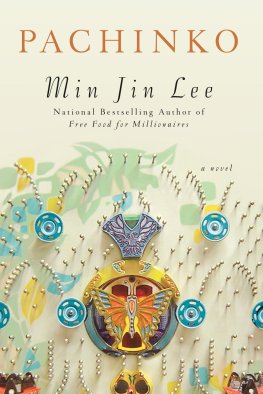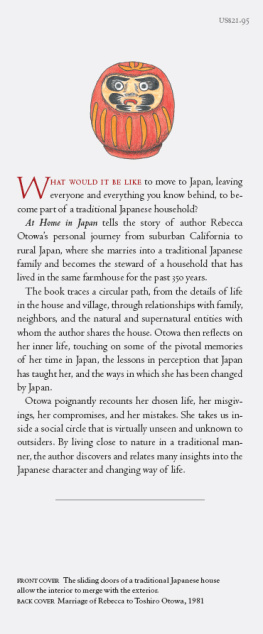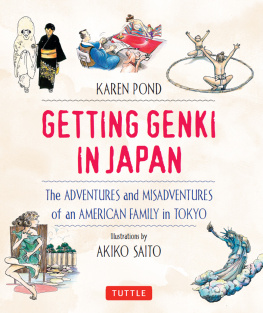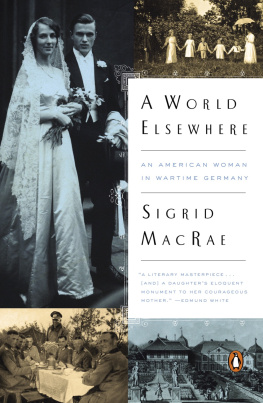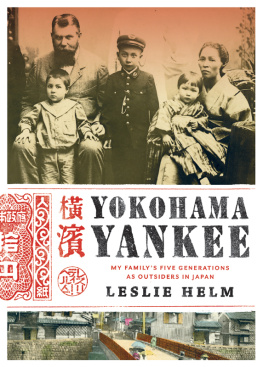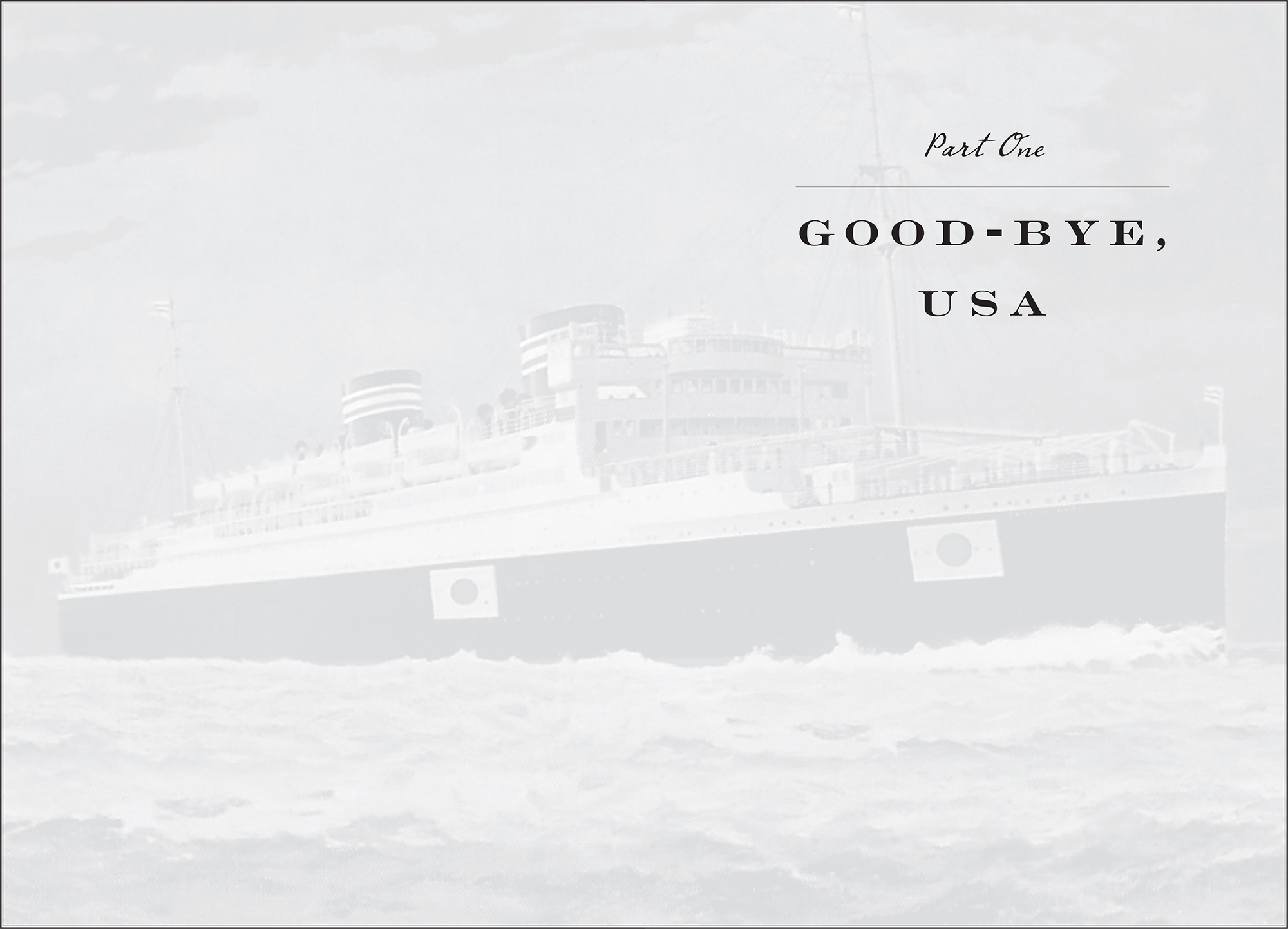contents
To my parents, Hildegard and Enno Ercklentz, who selflessly, courageously, and lovingly guided, protected, and cared for my two brothers and me throughout World War II in Japan, and into our adulthood.
To my brother Enno, who provided me with invaluable help, but sadly did not live to see the completion of this book.
Freedom is never more than one generation away from extinction. We didnt pass it to our children in the bloodstream. It must be fought for, protected and handed on for them to do the same, or one day we will spend our sunset years telling our children and our childrens children what it once was like in the United States where men were free.
Ronald Reagan
If youre going through hell, keep on walking.
Winston Churchill
M ay 29, 1941my fathers thirty-eighth birthdaywas a sunny, warm spring day in New York City. It started out just like any other during the two years since I had entered first grade at the Convent of the Sacred Heart on 91st Street, but it wasnt just an ordinary day. I knew that later that afternoon my family and I were embarking on an epic journey across the United States, across the Pacific, across Siberia, and all the way back to their native Germany. My two brothers and I had not been to Germany in four yearssince I was three years old. Insofar as we could comprehend such events, we knew that the country where our parents had been born was at war with Britain.
Our German governess, Aya, who had been hired to look after my two brothers and me and had been with our family for ten years, gave us our usual breakfast. As was the routine, she walked me to school, five city blocks away from our apartment at 1192 Park Avenue. It was the last day of second gradeand my last day before we leftand on that particular morning I was feeling excited and apprehensive, as well as sad. I was excited at the thought of taking a train across the United States but apprehensive about going to visit such faraway countries as Japan and Russia. I was sad to be leaving all my friends behind, even though my parents had assured me it would only be for a short while. At my age, I was mostly unaware of wider events. I was mainly concerned with the new braces on my teeth, which an orthodontist had recently put on, as well as keeping my hair under control after having had my first permanent, which I had so desperately wanted to get before our departure.
We were at the end of our last class together when our teacher, a nun whose lovely face shone from her habit, a white and crisply starched frame resembling ribbon candy, told us to be sure to leave our desks as spotless as we had found them. That was so the next group of second-graders, who would be entering our classroom in September, would not think we were a group of sloppy, inconsiderate girls. We did what she asked, were dismissed, and went straight to chapel for Ascension Thursday Benediction, curtsying to each nun as we were always required to do. Mother Mary Ranney, my second-grade teacher, had asked me to help her decorate the chapel for the last time. I was pleased that it had turned out so beautifully.
As Benediction was coming to an end, I felt a gentle tug on the sleeve of my uniform. It was Mother Ranney, telling me my parents had arrived to pick me up. I followed her out of the chapel, and while my family and I were saying our good-byes to Reverend Mother Shea and the other nuns, the double doors from the chapel opened and out streamed the girls from the upper classes, followed by the girls from the entire lower school. I was totally unprepared for the emotional farewells that followed, as one by one each of my classmates put her arms around my neck to say good-bye. With tears streaming down our cheeks, we could barely speak.
My parents had been living in New York since they were married in 1929. My father, head of the New York office of the Commerz und Privat Bank , whose headquarters were in Berlin, had been recalled to the home office. With my mother anxious to see her family, as well as my fathers, my father had been persuaded to return. My parents hadnt seen any of their relatives in three years, and couldnt imagine what they were all going through in a time of war. It was my mothers older brother who had suggested taking the Pacific route through Russia, because he had taken it himself from South America earlier in the year.
It was the first summer since I had started school that my family and I were leaving for Europe. For the past three summers my parents had either rented a house in Southampton or we had remained in the city. This time, however, my parents had chosen a different and exotic route to get to Germany. The upcoming trip was going to be a much longer one, across the Pacific and three-quarters of the way around the world. The idea of such a long journey made it somehow even harder to separate from all my friends, especially as I had no idea what the future held and what exactly we were going to experience on the way.

My parents in the spring of 1941.
Since Great Britain and France had been at war with Germany for nearly two years, my parents had chosen to travel across America and on to Yokohama, Japan, via the Pacific. They believed the British were taking citizens of Germany and their allied nations off ships crossing the Atlantic ocean, and incarcerating them. It was also safer, they thought, because of the German-Soviet Nonaggression Pact agreed to by Hitler and Stalin in 1939. My father made the entire planned trip sound like such an adventure that my brothers and I were able to get into the spirit of the journey without any real concerns about our fate. Perhaps, in private, he and my mother were not quite so calm.
My parents had hired a Checker taxicab, which was waiting outside the school to take the five of us to Grand Central Station. In those days, Checkers had room for five people becausejust as in London cabs to this daythey had two jump seats facing the back. We drove off, down Fifth Avenue along Central Park, which by now was in full bloom. My brother Enno was ten years old and my brother Alexander was not yet five. I was about to turn eight in less than a month. The three of us thought of the whole expedition as just a longer-than-usual trip with my parents, with the novel addition of travel by train.

My brothers, Alexander and Enno, with me in Manhattan, spring 1941.
When we arrived at Grand Central Station, we were immediately able to board our trainthe 20th Century Limited for Chicagoas my father had checked our forty pieces of luggage onto the train earlier in the day. We were traveling with such an inordinate number of suitcases because my mother was afraid wed run out of some of the most necessary items on our long trip and wouldnt be able to buy them anywhere, and it was unclear how long we would be staying in Germany once we got there. She had brought along plenty of soap, toilet tissue, Kleenex, peanut butter, cereals, jams, assorted canned vegetables and fruits, and a whole array of miscellaneous items necessary for the journey across several continents and cultures. She had also packed both our summer and winter clothing, in anticipation of cooler weather in Siberia.
In the taxi on the way to the station, my mood gradually changed to one of excitement again, as my brothers and I started talking about the next four or five days traveling on a Pullman sleeper train to the West Coast. It was going to be a new experience for us; we had frequently traveled by ocean liner, but never before overnight on a train. After boarding and settling into our compartments, we leaned out the windows to wave good-bye to Aya, who had come to see us off, as had several of my parents friends. A loud whistle sounded, and we watched as the conductor called out All aboard! and stepped back onto the train, which proceeded to pull out of the station at a snails pace. In the pit of my stomach I felt an anxiousness I couldnt shake off, so I went about distracting myself by unpacking for the days that lay ahead.


